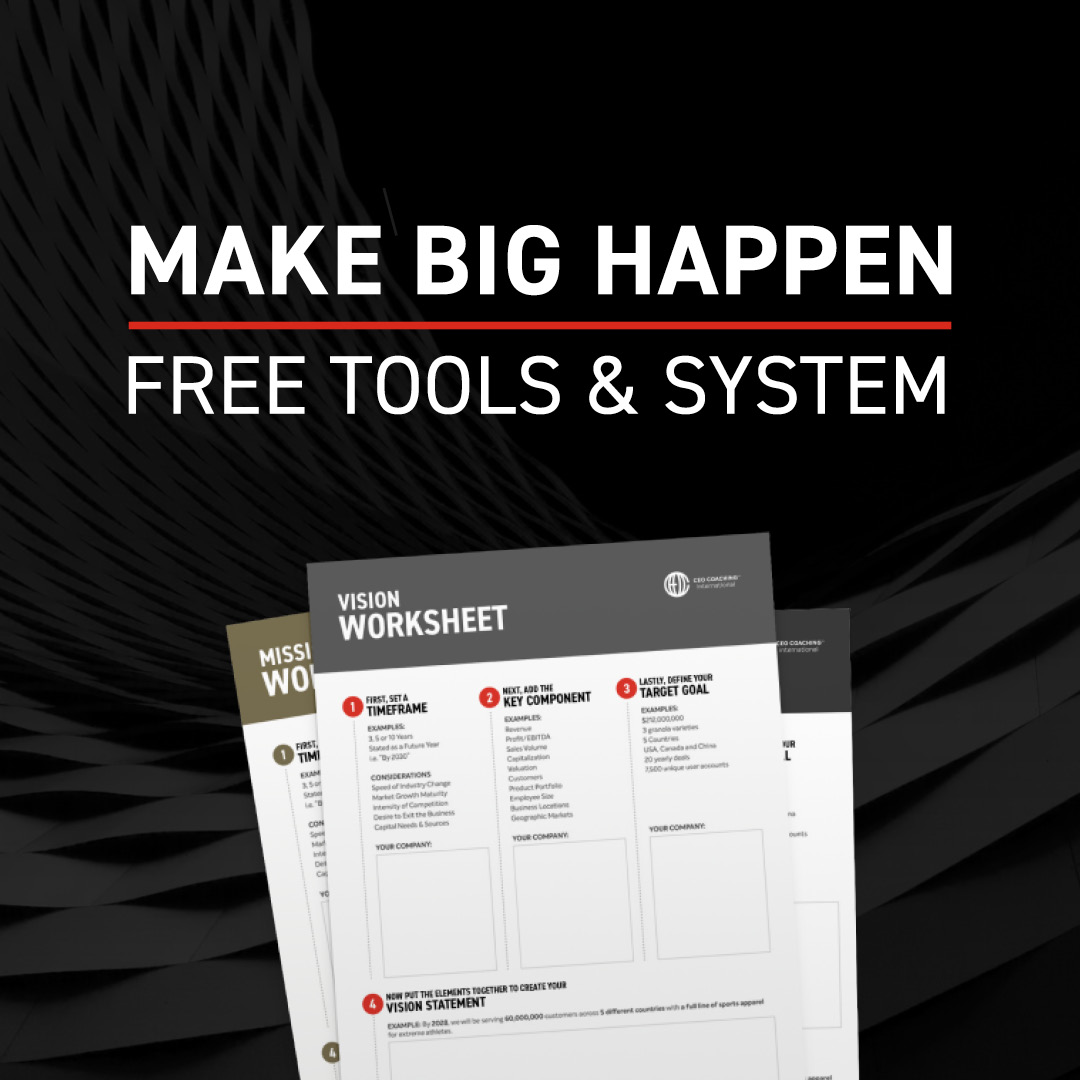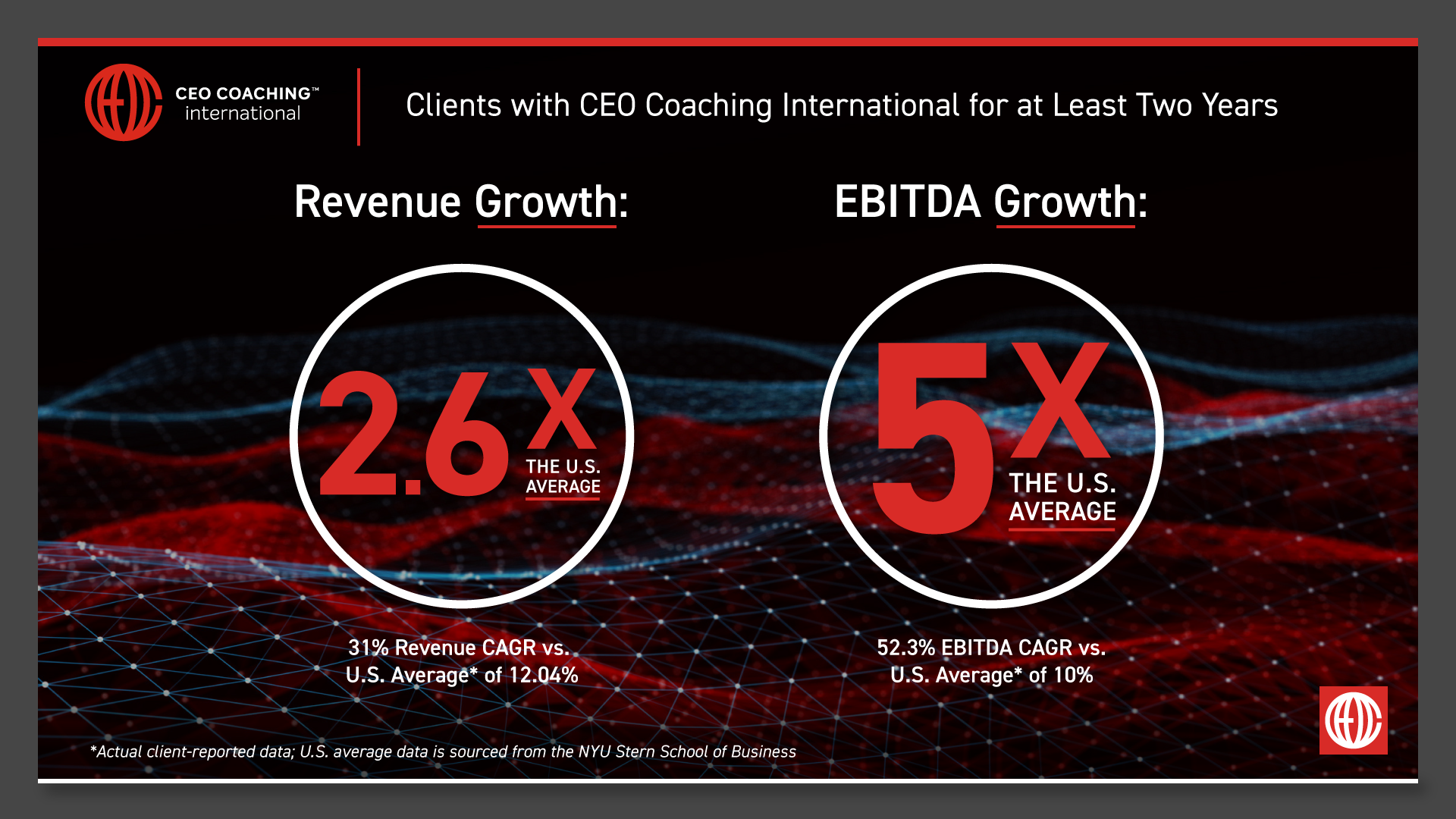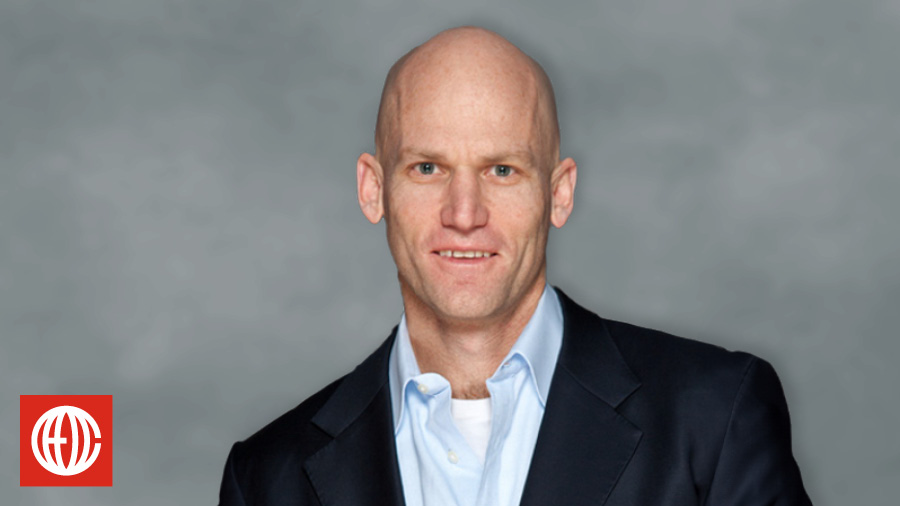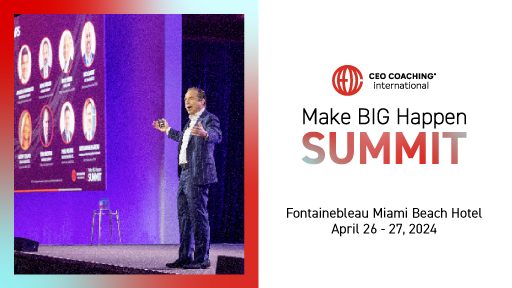Growth doesn’t happen overnight. But if you have the right tools, you can create a disciplined strategy to get there. Our team of former CEOs developed our suite of 30 proven Make BIG Happen Tools. Get access to the best practices that we’ve learned throughout the last decade of coaching hundreds of high-growth companies.
Executive Coaching
Blog & Insights


Edward Hughes On the Leadership Traits that Bui…
CEO Coaching Int’l Guest: Edward Hughes, a coach at CEO Coaching International. Edward is a seasoned entre…
Read more
Former CEO of Aculon and SVP/GM of TaylorMade G…
Former CEO of Aculon and SVP/GM of TaylorMade Golf Joins CEO Coaching International MIAMI, April 23, 2024 – CEO Co…
Read more
The CEO’s Guide to How a CXO Can Enhance Your C…
CEO Coaching Int’l Guest: Saari Gardner, the Chief Experience Officer at CEO Coaching International. Saari…
Read more
CEO Coaching International Clients Grow Profit …
CEO Coaching International Clients Grow Profit at 5X the National Average MIAMI, April 17, 2024 – CEO Coaching Int…
Read more
Beyond CEO, CFO, and COO: The Rise of Specializ…
Beyond CEO, CFO, and COO: The Rise of Specialized C-Suite Positions Even companies that pride themselves on innova…
Read more
How to Turn AI Hype Into BIG Profits by Executi…
CEO Coaching Int’l Guest: Randy Koch, a coach at CEO Coaching International. Randy drew on his 11 years of…
Read more
Take These 3 Steps to Raise More Capital Fast
Take These 3 Steps to Raise More Capital Fast If you feel like the capital raising environment is hostile right no…
Read more
5 Ways That the CMO Role is Evolving in a Digit…
5 Ways That the CMO Role is Evolving in a Digital, AI, and Client Experience World Starbucks recently joined a wav…
Read more
CEO Coaching International Invests BIG in AI wi…
CEO Coaching International Invests BIG in AI with Appointment of Former TaskUs CIO Curt Gooden as Chief AI Officer&nb…
Read more
Mark Moses on AI, Longevity, Resilience, and th…
CEO Coaching Int’l …
Read more
When Should a CEO Take Responsibility for BIG M…
When Should a CEO Take Responsibility for BIG Mistakes vs. Finding a “Fall Guy?” Public mistakes are inevitable at…
Read more
10 Provocative Questions CEOs Should Ask to Ide…
10 Provocative Questions CEOs Should Ask to Identify AI Opportunities From chatbots and automated customer service…
Read more